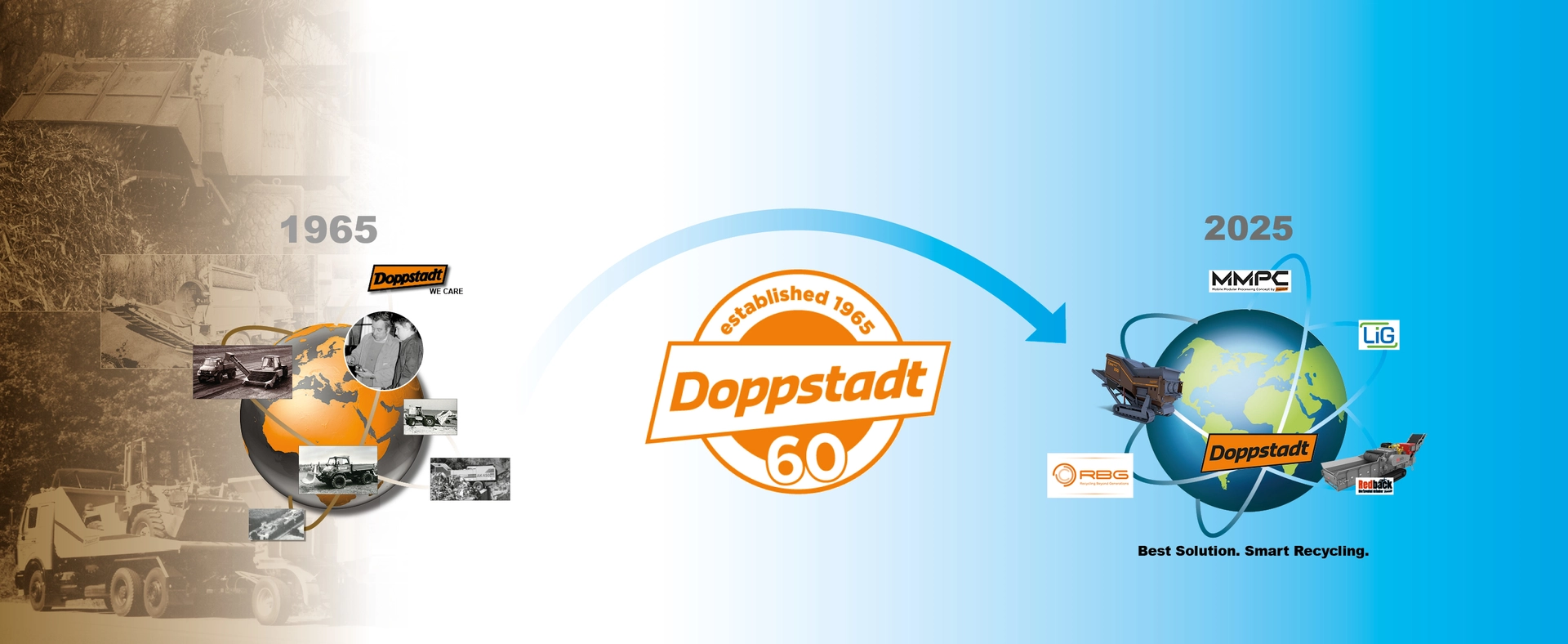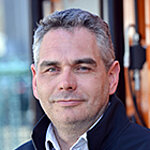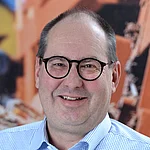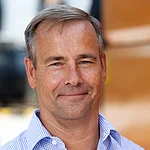
60 YEARS OF DOPPSTADT: COURAGE TO EMBRACE CHANGE
Doppstadt will be 60 years old in 2025. Can you give us an insight into the early years of the company?

Ferdinand Doppstadt: I associate the company's history with many personal memories. For example, there is a photo of me as a three-year-old, sitting proudly on one of our early machines. I always enjoyed technology, machines and tinkering. I think that's in the Doppstadt DNA. Our roots lie in agriculture. We then came to municipal services in a roundabout way. We built machines for cleaning filter basins and recycling drinking water filters. From the very beginning, we have always seen ourselves as a solution provider rather than a pure machine manufacturer. Every development was an evolution: there was an industry-specific problem, which we identified and then designed solutions for.
Ferdinand Doppstadt: In the early years, we had to prove our innovative strength and great flexibility time and again. We developed new machine solutions to meet these volatile market requirements of an economic, structural and legal nature and conquered new markets such as environmental technology. We have remained true to this entrepreneurial spirit to this day. Then in the 1980s came the big change to series production. At that time, we grew considerably - both in terms of production volume and the number of employees. We also positioned ourselves internationally and began cooperating with the first dealers in the European market. Our old production site quickly became too small. In 1992, our machine production finally found a new and more future-proof home in Calbe.
The change of name from Doppstadt Familienholding to LIG in 2019 was a major turning point. Why did you take this step?
Ferdinand Doppstadt: Since its foundation, Doppstadt has stood for innovative machine developments that overcome specific customer and market challenges. Over the decades, we have therefore built up an extensive range of solutions and know-how and established these internationally. In recent years, the tasks in the recycling sector have expanded significantly. In addition, we are confronted with strong regional market differences, often driven by varying legislation. We have therefore decided to return Doppstadt as a brand to its core competence, innovative recycling technology with a focus on the shredding of waste. LIG will take over the existing know-how in all other areas.
With the diversification of the recycling market, you have addressed current challenges in the industry. What other problems and opportunities do you currently see?
Ferdinand Doppstadt: It is crucial for our work to always have our finger on the pulse. We need to know the current market conditions and needs, see where markets are growing and where the future markets lie. It is also essential that we are familiar with all current and planned legislation in the recycling and waste disposal industry. This is the only way we can offer our customers future-proof and economical solutions. In recent years, we have brought strong partners to our side who share our vision. Our common goal is to develop an attractive product range for our customers and to position ourselves even more strongly globally.

Michael Zeppenfeldt: From personal experience, I can confirm how important legal certainty, flexibility and efficiency are. Before I joined Doppstadt as Sales Manager in 2019, I worked in various positions in the waste disposal sector for 25 years. It was quite common for stationary recycling solutions to be purchased for a seven-figure sum, which after just a few months no longer corresponded to the economic or legal basis of the previous planning and therefore had to be adapted at great expense.
Michael Zeppenfeldt: It is an intensive process to develop an individually suitable solution for our customers with which they can optimally manage the many challenges they face. It was clear to us from the outset that flexibility, cost-effectiveness and legal certainty are the keys to success. This was also confirmed by our customers in numerous discussions. After many considerations and tests, we came to the conclusion that mobile machines that are smartly combined into a complete solution best combine these characteristics. Together with our customers, we put this idea into practice and successfully established our Mobile Modular Processing Concept (MMPC) on the market.

Gerd Schreier: We had our strongest year to date in 2022, both in terms of sales figures and turnover. In 2023, we then felt the full force of the late effects of coronavirus. The market collapsed worldwide. Many companies postponed investments. In order to continue operating profitably, we analyzed every area of the company and every process, turning over every stone to adapt to the new circumstances. Difficult decisions also had to be made. It was with a heavy heart that we parted company with the prefabrication in Calbe. We are already seeing the first positive effects of this tough but necessary restructuring. We are therefore very confident that we will return to our former strength in 2025.
Gerd Schreier: As already explained, the core of our strategy is to focus entirely on our most important competencies. We stand for flexible, economical and future-proof recycling solutions. We currently see great opportunities in the areas of electrification and automation. With the INVENTHOR 6.2 and our new SM 620.3 screening machines, we have successfully launched proven solutions with electrified drives onto the market. We want to gradually expand this range.
Ferdinand Doppstadt: Another important component of our strategy is internationalization. We see great opportunities in this area. We currently produce exclusively in Germany. However, we are planning to set up our own production sites in China and the USA in the coming years. In China, regional production is already running on a small scale. Our local customers will benefit not only from even closer support, but also from faster delivery times and a comprehensive range of services. We can also respond even better to local requirements and needs.